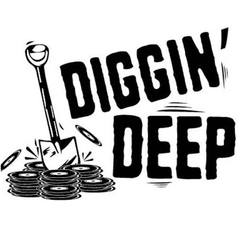Here's the definitive defdinition or explanation - copied from my previous post a few months ago!
The term 'Crossover Soul' was first used over here (in the UK) by Rod Dearlove at Thorne (Canal Tavern) to describe those records produced in the late 60's and early 70's that were neither:-
a) Typical 60's style Soul / Motownesque tunes
or
b ) Typical 70's 'strings n' things' productions.
These records had not really gained mass favour on the UK 'Northern' scene as they weren't 'typical' Motown styled 60's sounding records.
Nor had they been well received on the 'Modern' scene as they weren't necessarily 'uptempo, new or 'zippy' enough for the modern crowd.
These were records produced around that 4-5 year 'crossover' period between the 60's and the 70's.
The term 'Crossover Soul' in the UK 'Soul Scene' sense does not refer to music that 'crossed over' from the R&B charts to the mainstream (as in the US sense) nor does it mean records that 'crossed over' from the 'Modern' rooms to the 'Northern' rooms.
Typical 'Crossover Soul' records referred to at the time that the phrase was first used in this context (late 80's / Early 90's) would have included:-
Bobby Reed "The Time Is Right For Love"
Soul Brothers Inc "That Loving Feeling"
Frank Lynch "Young Girl"
Enchanted Five "Have You Ever"
Vivian Copeland "Key In The Mailbox"
LJ Reynolds "All I Need"
Sandra Wright "Midnight Affair"
Ultimates "Girl I've Been Trying To Tell You"
Tyrone St German "In A World So Cold"
Sy Hightower "I Wonder Why"
100 Proof "Don't You Wake Me"
Will Hatcher "You Haven't Seen Nothing Yet"
Ray Frazier "These Eyes"
None of these had been acknowledged 'Northern' or 'Modern' soul records (wrong tempo and wrong 'sound' for the Northern scene... and far too old for the other).
All of the above, though, fitted the 'Crossover Soul' genre and the Thorne crowd's requirements perfectly.
In the past 15 or so years (since the phrase was first used to describe records from this period) this 'sound' and type of record has since 'crossed over' to the Northern Scene alerting many people to that rich period of Soul artistry, the late 60's and early 70's... and confusing others as to the definition.
Ultimately, though, we have Rod Dearlove to thank for breaking the mould.
Sean Hampsey






